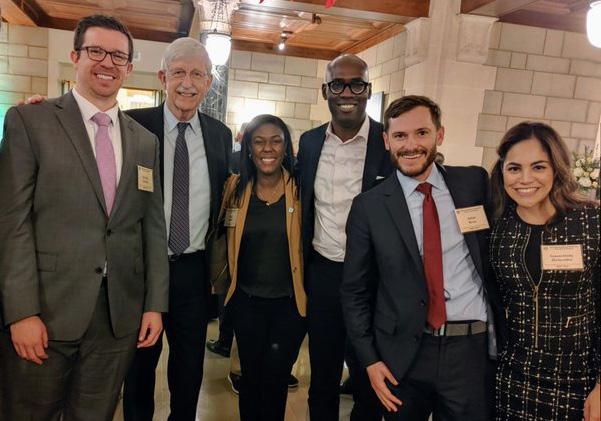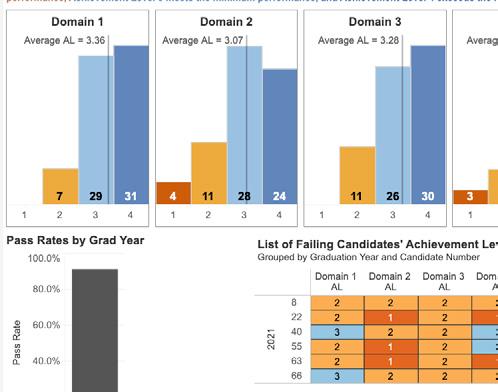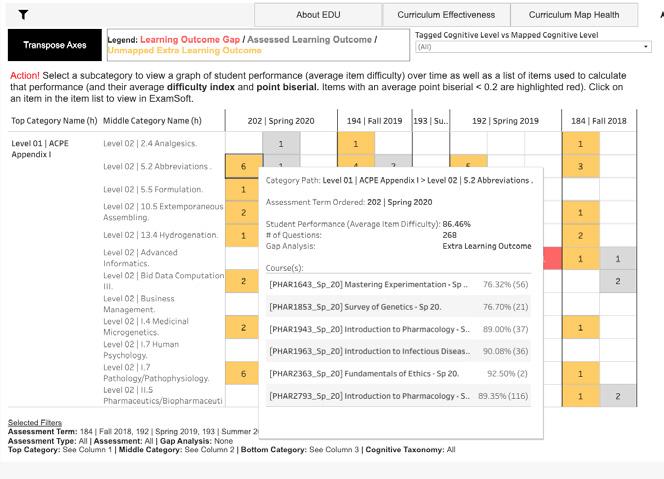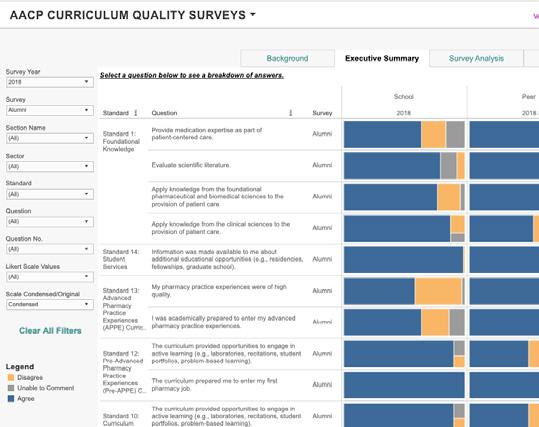
5 minute read
A Rising Research Star
Inmaculada Hernandez, the 2022 National Academy of Medicine Fellow in Pharmacy, shares her thoughts on how to use data to get additional support for pharmacy-provided services and advance the profession.
By Emily Jacobs
Dr. Inmaculada Hernandez, associate professor of clinical pharmacy at the Skaggs School of Pharmacy and Pharmaceutical Sciences at University of California, San Diego, has been selected as the 2022 National Academy of Medicine Fellow in Pharmacy. Hernandez is now the second UCSD faculty member to be selected for this fellowship. The NAM fellowship is supported through an endowment from AACP and the American College of Clinical Pharmacy, as part of the NAM Fellowships for Health Science Scholars program. The program invites early-career academic professionals to participate in studies related to American health, allowing them to contribute to the future of healthcare while furthering their own careers.
Academic Pharmacy Now spoke with Hernandez to find out more about her goals for this two-year fellowship and how she hopes to enrich academic pharmacy.
How did you react when you found out about the fellowship?
I was really excited, because I know a few of the previous fellows and they’ve spoken of what a terrific opportunity it is. I do some work around pharmaceutical policy, and I thought this could be a great avenue to disseminate and expand my work on the area.
What are your primary research interests?
I have three main areas of work. One is using large, existing data sets to understand how drugs work, such as which drugs work better in which populations. That’s often drugs that have already been approved. Then I do some work around drug prices, like drivers of drug prices. Why are drugs so expensive here in the U.S.? And the third one, which is something that we started recently, is looking at spatial access to healthcare, with a focus on pharmacy access. We’re trying to understand, for instance, are independent pharmacies more important in providing access to care in rural areas than chains? Those sorts of questions.
What will be your research focus within the NAM fellowship?
So the Academy, often commissioned by the government, puts together groups of experts to look at certain aspects of science that the government needs an answer for. The idea is that I would become involved in one or two studies that are related to my expertise. We are still waiting for a match of where my areas of expertise are going to fit the studies that they have.
Do you have any specific goals for the fellowship?
We have demonstrated during Covid that pharmacies are a key part of access to healthcare and that we can help with many services beyond drug dispensing. And this is probably going to be increasingly important as we’re expected to have a shortage of clinicians in the next few decades. I would like to understand what evidence would be important to generate to support policymaking that expands the role of pharmacists in the provision of clinical services.
How is this fellowship important for pharmacy education and the practice of pharmacy?
I think it’s a great opportunity for an academic to be involved in an organization that has a very high impact. The Academy is now doing a lot of studies around workforce and health workforce, especially given the burnout associated with Covid. As I begin to understand what key data we’re missing to make the case for why pharmacies need to be able to deliver more services, I’m hoping that I can guide my research into [those] areas where we need to show data to advance our profession. There are certainly a lot of areas that we need to work on in pharmacy education. Mental health is probably the most salient area right now. There’s burnout among practicing pharmacists that inevitably is projecting a pessimistic perspective of the profession to our students. I hope that we work toward solutions that can make the healthcare workplace a more welcoming environment.
Do you have any ideas on how to help with that?
It’s been interesting as a faculty member to talk with students’ preceptors and employers. The professionals working in the clinical settings where our students are placed are overworked. I hope that the current will lead to much needed change. We are actively working with the places where our students work and train clinically to understand what are the barriers they are currently facing and be able to project an enthusiastic perspective of our profession to our students.
How are you working with AACP under this fellowship to advance pharmacy?
I’m an academic and they are the leading organization in pharmacy education, so I would like to join efforts with them and support their current objectives to advance pharmacy education and the profession. We’re going to try to brainstorm how we can use this opportunity that they have gifted us with to try to work on pharmacy education and advancing pharmacy practice.
The pandemic has demonstrated, not only in the U.S., that pharmacists are accessible healthcare providers who are at the forefront of healthcare delivery. The flexibilities associated
Maine Contributes to NAM’s Collaborative on Clinician Well-Being
AACP’s former EVP and CEO Dr. Lucinda Maine participated in the National Academy of Medicine Action Collaborative on Clinician Well-Being as a member of the steering committee. NAM launched the Collaborative in 2017 to address the alarming rates of burnout across all specialties and care settings in the United States. The Collaborative has three goals:

1) raise the visibility of clinician anxiety, burnout, depression, stress and suicide; 2) improve baseline understanding of challenges to clinician wellbeing; and 3) advance evidencebased, multidisciplinary solutions to improve patient care by caring for the caregiver.
Part of the steering committee’s work involved creating a national strategy to address these issues. The committee participated in six meetings between December 2021 and May 2022 to lead the conceptualization, outlining, drafting and editing of the National Plan for Health Workforce Well-Being, which NAM released in October 2022.
The plan calls on healthcare and public health leaders, government, payers, industry, educators and leaders in other sectors to help drive policy and systems change.
AACP is one of 50 organizations that has endorsed the final publication and is committed to reversing clinician burnout trends.
With all your data in one place, Enflux helps: Make data-driven decisions
Link actions to strategic plans
Identify curriculum gaps and effectiveness



Improve program and student performance
Reduce accreditation complexity and risk Transforms access to important services such as immunizations. Surveys show that 70 percent of adults would like those pandemic flexibilities to stay. It is therefore a crucial time for pharmacists and pharmacy organizations to advocate for those flexibilities to stay beyond the pandemic. We also need to leverage the momentum generated by the crucial role that pharmacy has had in the handling of Covid to advocate for the recognition of provider status and for the development of reimbursement models that ensure the financial sustainability of independent pharmacies.

I have recently asked the leaders of pharmacy organizations to let us know if, as researchers, we can contribute to the development of evidence that they believe will be key to advocating on the Hill for these policies, which are of major relevance for health equity.

Have you done anything to celebrate getting the fellowship?
I really like my job, so I often do not celebrate professional achievements—I feel what is worth of celebration is the opportunity that I have every day to work in the field, guiding my own research agenda and generating the next generation of pharmacists. I often tell my students that the beauty lies in the path, not the landmark achievements. The constant pursuit of the next objective can leave you unsatisfied when you achieve those goals you set for yourself, because then it is hard to figure out what is the next thing. I think the approach to satisfaction and personal achievement in academia is to enjoy your job every day. I wish I had realized that in my earlier years as an academic pharmacist. ɋ



